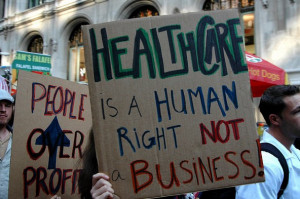Study Undercuts FCC Chair’s Reason For Rolling Back Net Neutrality
By David Armiak for PR Watch - A recent publication in the International Journal for Communication (IJoC) calls into questions the research cited by current Federal Communications Commission (FCC) Chairman Ajit Pai as his primary justification for plan to roll back net neutrality rules. Dwayne Winseck, Professor in the School of Journalism and Communication at Carleton University and Jeff Pooley, Associate Professor and Chair of Media & Communication at Muhlenberg College examined and found that an influential paper written by economists Gerald Faulhaber, Hal Singer and Augustus Urschel and cited by Pai "is riddled with factual errors and unsubstantiated claims." Winseck and Pooley also revealed that a longer version of the same paper had been submitted twice by an industry-funded group to the FCC earlier, but that was not initially mentioned in the IJoC article. "It is important research, revealing how corrupt and duplicitous the FCC has become in the Trump era," Robert W. McChesney, Gutgsell Endowed Professor in the Department of Communication at the University of Illinois-Champaign said of the new article. Winseck and Pooley's article undercuts FCC Chair Pai plans to do away with net neutrality after ten long years of grassroots campaigning by democracy...















